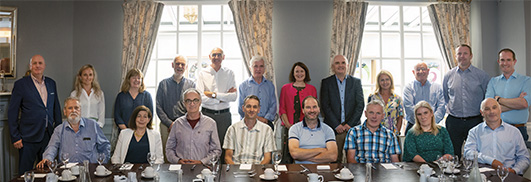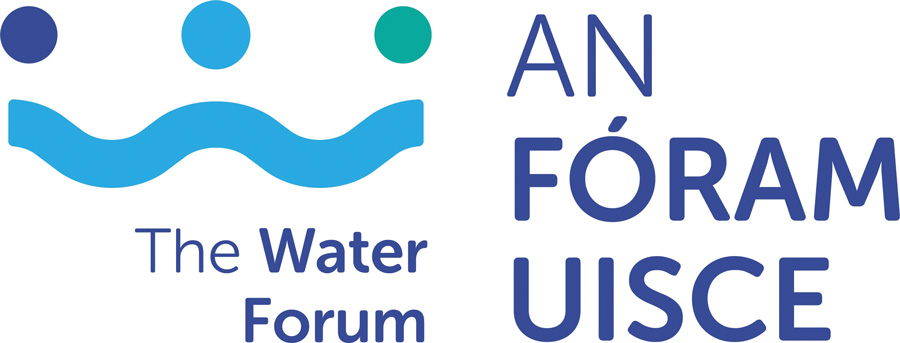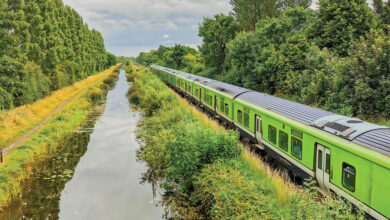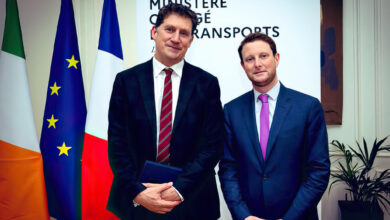The National Water Forum: Ireland’s independent statutory stakeholder body

The Water Forum was established in 2018 to provide a platform for public engagement on all matters relating to water management in Ireland and the implementation of the Water Framework Directive.
It consists of 25 members, including representatives from a wide range of organisations and sectors with an interest in water issues that includes the environmental sector, the rural and agricultural sector, consumers including customers of Irish Water, the rural water sector, rivers trusts, angling, the business sector, trade unions, the community and voluntary sector, fisheries, forestry, education, social housing, and tourism. In accordance with the Water Services Act 2017, the Forum has advisory roles in relation to the Department of Housing, Local Government and Heritage (DHLGH), Irish Water, the Commission for Regulation of Utilities (CRU) and the Water Policy Advisory Committee (WPAC).
The Forum provides an opportunity for stakeholders to debate and analyse a range of issues with regard to water quality and quantity, rural water policy, issues of concern to customers of Irish Water, and the implementation of the Water Framework Directive and the River Basin Management Plan (RBMP). We partner with key agencies to leverage expertise, insight, and knowledge to make sure our discussions are based on sound science and the most up to date information.
River Basin Management Plan
The DHLGH is currently drafting the third cycle River Basin Management Plan for Ireland. The draft plan was out for public consultation for six months, and the Forum’s submission on the draft RBMP was the culmination of almost six months of engagements with agencies, experts, and academics to gain insight into the status of Ireland’s waterways, current and future risks to water quality and quantity, and the identification of gaps in current policy to protect water resources and ecosystems. The final submission reflected an agreed position that included the perspectives of all the different stakeholders represented on the Forum. The submission included over 110 recommendations for implementation in the third cycle, covering areas such as water governance, public participation in catchment management planning, the need for an outcomes-based approach for every waterbody, as well as recommendations to address most of the individual pressures impacting on water quality.
In March, the Forum presented the submission to Minister for Housing, Local Government and Heritage, Darragh O’Brien TD, and Minister of State Malcolm Noonan TD. In April, the Forum Chair Matthew Crowe, presented details of the submission to the Joint Oireachtas Committee on Housing, Local Government and Heritage and a number of follow-up engagements have taken place with department officials to consider in detail how the recommendations can be included in the final RBMP which is due in Q3 2022.
There is a need for policy coherence in environment and water management
While everyone shares the objective of clean and healthy waters, achieving this will require fundamental changes in many aspects of life in the country. In spite of the myriad of policies developed to prevent or remedy the impact of human activities on the environment, the quality of our rivers, lakes and estuaries keeps deteriorating. Biodiversity is declining and limiting global warming to less than 1.5˚C seems increasingly out of reach.
Recent research commissioned by the Water Forum states that policy coherence is essential to ensure that one part of government does not undermine what another is trying to achieve. This warrants an evolution of the processes and approaches to policymaking to allow for greater emphasis on seeking their convergence and developing their potential synergies. Policy mapping needs to be carried out at policy development stage to identify interfaces between environmental and sectoral policies to address trade-offs explicitly. The research suggests that guidelines need to be provided to departments and civil servants regarding how such trade-offs can be managed in an accountable and transparent way at national and local levels.
The Water Forum, as a multi-stakeholder body that achieves consensus positions on policy developments are at the vanguard of such approaches. The Forum’s policy, A Framework for Integrated Land and Landscape Management, recommends a systems-based approach to prioritise actions for water, climate and nature that have the largest synergetic impact. The challenge is breaking down traditional departmental and institutional silos to achieve the deep-seated transformation that fosters a ‘cultural’ change that would result in a shift towards truly integrated and collective action for environmental outcomes.
The third cycle RBMP that is currently in preparation provides an opportunity for such innovative policy approaches, particularly with the plan to develop 46 catchment plans. Early stage sectoral and stakeholder engagement is essential where ‘roundtable’ discussions allow for the exchange of views, knowledge sharing and debate. Expert facilitation of such deliberative processes would manage stakeholder participation and facilitate the emergence of collective preferences.
E: gretta@nationalwaterforum.ie
W: www.thewaterforum.ie






